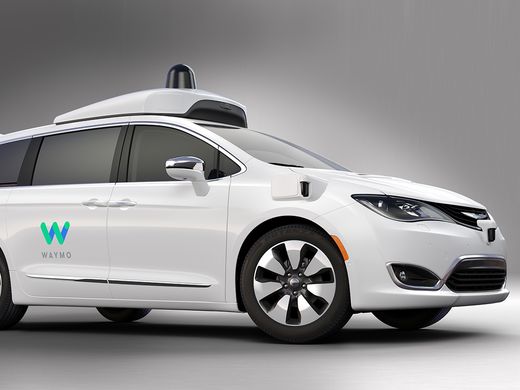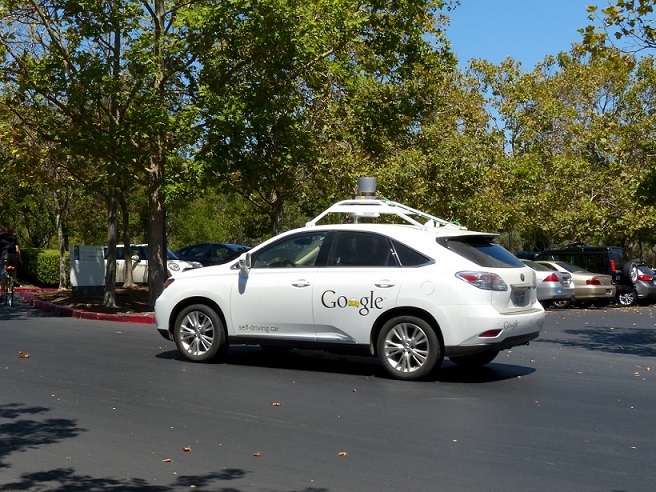Now Reading: Self-driving car legislation gets approval of U.S. Senate panel
-
01
Self-driving car legislation gets approval of U.S. Senate panel
Self-driving car legislation gets approval of U.S. Senate panel

The United States Senate Commerce Committee on Wednesday unanimously approved a bill to accelerate self-driving cars to market without human intervention and bar states from enforcing regulatory road blocks.
The bill still needs to be approved by the full Senate. The U.S. House passed a similar variation last month unanimously. General Motors, Alphabet, Ford Motor and others have lobbied for the landmark legislation. In spite of some problems from Republicans, the Senate bill does not speed approval of self-driving innovation for big commercial trucks after labor unions raised safety and employment issues.
The procedure, the first considerable federal legislation targeted at accelerating self-driving cars to market, would enable automakers to win exemptions from existing safety rules that forbid vehicles without human controls.
States could still maintain rules on registration, licensing, liability, insurance and security inspections, however not performance standards.
Senator Richard Blumenthal looked to modify the bill to require companies to include human controls in case of an emergency, but in the face of opposition dropped the proposal. Some senators argued it would be more harmful to allow human motorists to seek to take control of driverless automobiles.
A number of Republican senators noted the strong support of trucking companies to include vehicles more than 10,000 pounds, but Democrats made it clear that they would not support the bill if it consisted bigger vehicles.
Auto safety advocates criticized that the bill lacked enough safeguards. It would within 3 years permit automakers to sell up to 80,000 self-driving vehicles yearly if they could show they are as safe as present automobiles.
The bill’s phase-in schedule was modified to enable 15,000 per manufacturer and approximately 80,000 after three years, below 100,000 proposed previously. It would lift the cap entirely after four years.
The bill grants NHTSA authority to exempt automobiles from existing federal safety requirements and the firm would have to make a determination under 6 months of getting a request.
The Commerce Committee adopted a House approved provision that would need automakers to ultimately include a rear seat alert system created to warn parents not to forget kids in car seats.
Stay Informed With the Latest & Most Important News
Previous Post
Next Post
-
 01Polestar Boss Says It’s Time To Outrun BMW M And Mercedes-AMG
01Polestar Boss Says It’s Time To Outrun BMW M And Mercedes-AMG -
 02Spy Shots: 2027 Mitsubishi Pajero Spotted in Testing Ahead of Possible U.S. Return
02Spy Shots: 2027 Mitsubishi Pajero Spotted in Testing Ahead of Possible U.S. Return -
 03Spy Photos: VW ID. Polo GTI Goes Electric with 223 HP and 280 Miles of Range
03Spy Photos: VW ID. Polo GTI Goes Electric with 223 HP and 280 Miles of Range -
 042026 Toyota Hilux EV: A Powerful Truck with Silent Torque
042026 Toyota Hilux EV: A Powerful Truck with Silent Torque -
 05The Controversial Ford Voodoo V8 That Was Killed Off Too Early
05The Controversial Ford Voodoo V8 That Was Killed Off Too Early -
![2027 Mercedes-Benz S-Class Debuts with V8 Engine [Photo Gallery]](https://speedlux.com/wp-content/uploads/2026/01/2027-Mercedes-Benz-S-Class-33-155x125.jpg) 062027 Mercedes-Benz S-Class Debuts with V8 Engine [Photo Gallery]
062027 Mercedes-Benz S-Class Debuts with V8 Engine [Photo Gallery] -
 07Hyundai Palisade’s Breakout Year Shows How Quickly the Market Can Turn
07Hyundai Palisade’s Breakout Year Shows How Quickly the Market Can Turn


![2027 Mercedes-Benz S-Class Debuts with V8 Engine [Photo Gallery]](https://speedlux.com/wp-content/uploads/2026/01/2027-Mercedes-Benz-S-Class-33-700x394.jpg)











































